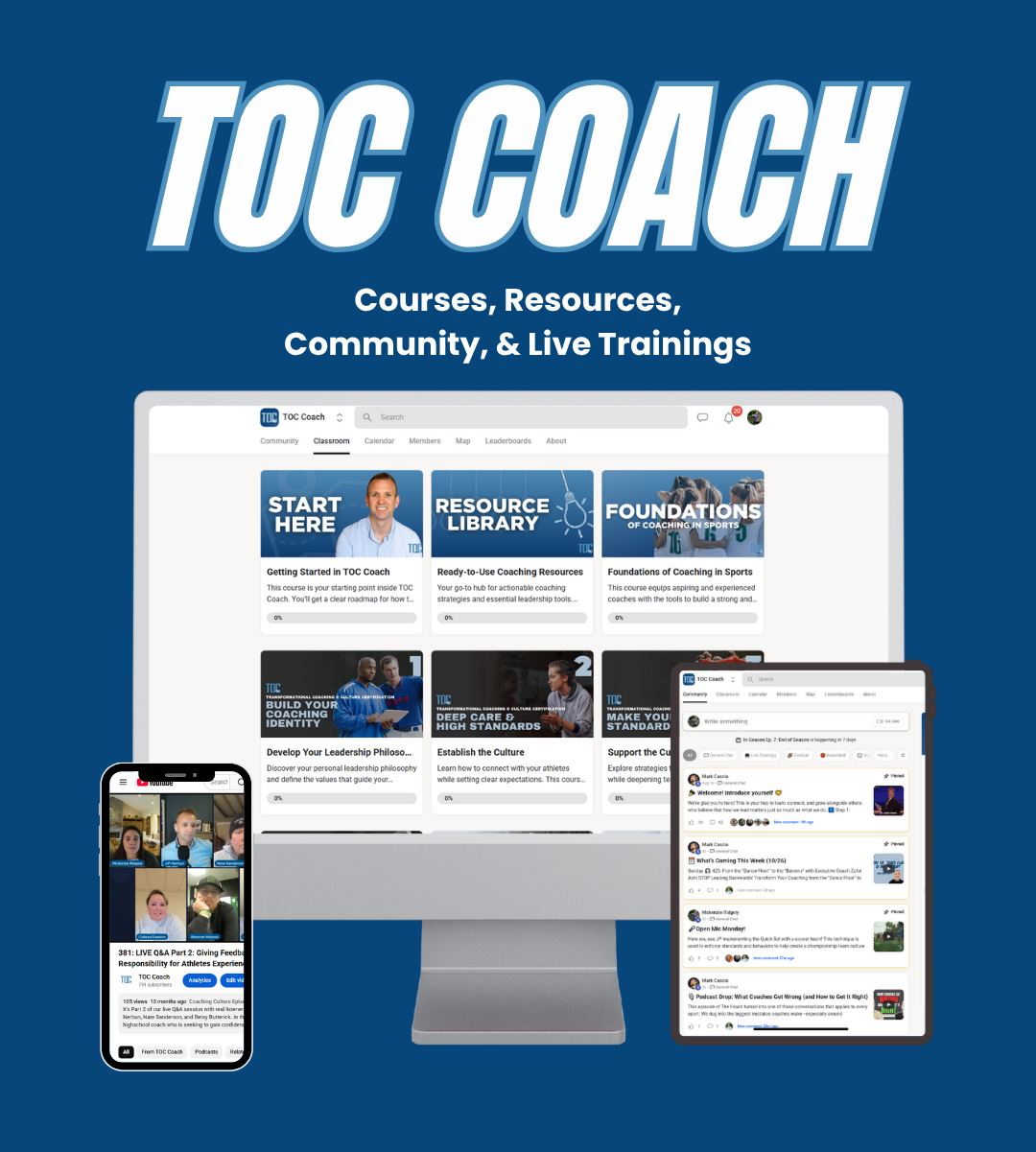Revolutionize Your Coaching: 12 Game-Changing Lessons from the Legendary Anson Dorrance
Anson Dorrance is one of the most successful coaches in women's soccer history, and his innovative coaching approach has transformed the sport. With almost 50 years of experience coaching at the University of North Carolina, Dorrance has won 22 NCAA championships and produced numerous Olympic and World Cup champions.
Dorrance's coaching philosophy is centered around creating a program that he himself would want to play for. He achieves this by embracing the "genius of the AND" in his coaching approach, rather than succumbing to the "tyranny of the OR." Dorrance effectively integrates seemingly opposing ideas to achieve remarkable outcomes. Recently, I had the privilege of interviewing Dorrance for my podcast The Coaching Culture Podcast, and I learned so much from our conversation. Here are 12 game-changing lessons that coaches can learn from the legendary Anson Dorrance.
1. Competition and Lightheartedness: Dorrance understands the importance of creating a highly competitive environment, but he also knows that players need to have fun and enjoy the game. By balancing competition with lightheartedness, he creates a culture where players are motivated to give their best while also enjoying the process.
2. Accountability and Catching them Doing Good: Holding players accountable for their behavior and performance is crucial, but Dorrance also believes in recognizing and praising positive actions. By catching players doing good and highlighting their strengths, he motivates them to continue making progress.
3. High Standards and High Care: Dorrance demands excellence from his players, but he also cares deeply about their well-being. By emphasizing both high standards and high care, he creates an environment where players feel supported and empowered to achieve their best.
4. Emotional Energy: Dorrance recognizes that coaching requires a great deal of emotional energy, but he also knows that failing to enforce standards can have even greater costs. By coaching in alignment with his values and beliefs, he avoids burnout and helps his players find joy in the game.
5. Competitive Cauldron: Dorrance uses a tool called the competitive cauldron to create a highly competitive environment and prepare his players for the reality of the world. This involves charting winners and losers in practices and ranking players based on their performance.
Looking to build a competitive environment with the Competitive Cauldron method? Our online course can help! Learn how to effectively implement the Cauldron and get access to a Google Sheet that simplifies tracking, recording, and reporting. Get Access Now!
6. Teaching Players to Compete: Dorrance believes that it's not enough to simply expect players to be competitive. Coaches need to actively teach players to embrace competition and strive to be their best. He wants them to know: "it's okay to be the best. It's okay to go after your buddy in practice. It's okay to win."
7. Socratic Questioning: Dorrance uses a technique called Socratic questioning to keep his players engaged and help them learn from their mistakes. By posing questions to the entire team and then calling on players, he encourages active participation and learning.
8. Helping them Get to the Truth: Dorrance believes that getting to the truth quickly is essential for player development. He uses a variety of tools, including the cauldron, peer assessments, and honest 1-1 conversations to help players "get to the truth."
9.Perfect Warm-Up: Dorrance emphasizes the importance of a perfect warm-up, recognizing that it sets the tone for the rest of the practice or game. By training each element of the warm-up from the start of the season, he sets a high standard for his players to follow. As he says, "you can't recover from a bad warm-up."
10. Having an Effect: "If you have to yell at them from the sidelines you haven’t coached them." & "To tell a player to get fit for example is not good enough. You have to instruct them about the process: how often, what kind of aerobic anaerobic or combinations, what intensity, so they are thoroughly educated.
11. Invest in Every Athlete: Dorrance believes in being intentional in one-on-one meetings with each player multiple times throughout the year. He focuses on six key areas in player development plans: technical, tactical, fitness, psychological/mental, self-discipline, and team chemistry.
If you're interested in creating Player Development Plans and building an exceptional team culture, my book, The Culture System, is a great resource. In it, you can learn about the framework for developing effective plans and strategies for building a strong team culture. You can grab a copy of the book on Amazon by following this link.
12. Demonstrate Care for All Players: Dorrance understands the importance of showing care and love to each player, speaking their love language, and focusing on the person first, athlete second. By finding ways to show he cares, he builds trust and creates a culture of support and empowerment.
If you want to learn more about Anson Dorrance check him out on our latest episode of the podcast and his books Training Soccer Champions!
Anson Dorrance's coaching philosophy revolves around the concept of creating a program that he would have wanted to play in.
To achieve this, he embraces the "genius of the AND" by skillfully balancing opposing ideas and integrating them to cultivate a culture of excellence, motivation, and joy.
The remarkable success of his approach is a testament to its effectiveness, and coaches can undoubtedly learn valuable lessons from his methods.
- J.P. Nerbun
Author of The Culture System



